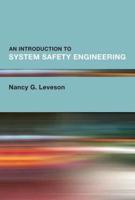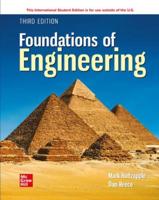Publisher's Synopsis
Safety professionals know that the best solution to preventing accidents in the workplace boils down to engineering out the hazards. If there isn't any hazard or exposure, there can't be any accident. If you accept the premise that the ultimate method for protecting workers on the job requires the removal or engineering-out of hazards in the workplace, this text is for you. The Handbook of Safety Engineering: Principles and Applications provides instruction in basic engineering principles, the sciences, cyber operations, math operations, mechanics, fire science (water hydraulics, etc.), electrical safety, and the technical and administrative aspects of the safety profession in an accessible and straightforward way. It serves students of safety and practitioners in the field-especially those studying for professional certification examinations-by placing more emphasis on engineering aspects and less on regulatory and administrative requirements. This practical handbook will serve as an important reference guide for students, professors, industrial hygienists, senior level undergraduate and graduate students in safety and industrial engineering, science and engineering professionals, safety researchers, engineering designers, human factor specialists, and all other safety practitioners.










